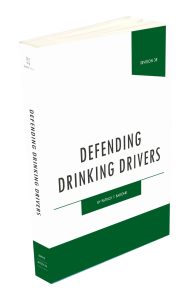Search
When Can You Drive After Using Marijuana?
It can be difficult for a marijuana user to subjectively assess their level of impairment. Even worse, there is no way for a marijuana user to objectively evaluate their level impairment. So, after consuming marijuana medically or recreationally, how can a marijuana user make a safe decision about driving?
This uncertainty is what makes marijuana-related DUI charges in Michigan so complicated. You may feel fine to drive, but under the law, it’s not how you feel—it’s how your behavior is perceived and how well you can perform critical driving tasks. Unlike alcohol, where we have clear BAC limits, marijuana impairment is subjective and varies from person to person. That means two people could consume the same amount of cannabis, and one could be legally impaired while the other may not be—yet both could be arrested depending on how they appear during a traffic stop.
Before we get to that question, let’s do a quick review of Michigan’s OWI laws as it relates to drugs. In Michigan, you can be charged (and potentially convicted) if you are either impaired or intoxicated by alcohol, drugs, or any combination thereof. Specifically, Michigan’s OWI law references impairment or intoxication caused by alcohol, controlled substance or “other intoxicating substance.” See Michigan Compiled Laws Sec. 257.625.
 Michigan Criminal Defense Lawyer Blog
Michigan Criminal Defense Lawyer Blog


